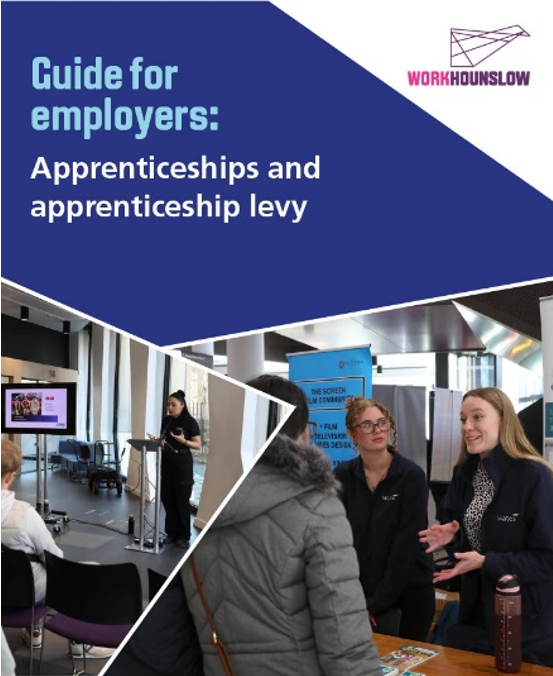Guidance on apprenticeships and apprenticeship levy transfer

What is an apprenticeship?
Apprenticeships are real, paid jobs offering training for individuals living in
England, aged 16 and above, entitled to work in the UK, and not in full-time education. Through
off-the-job training Apprentices can gain valuable skills and knowledge
in a job role that could benefit your businesses now and in the future.
Apprentices must set aside up to six hours of their time towards off-the job learning.
They can acquire skills and qualifications, ranging from Level 2 (GCSE equivalent) up to degree level.
Benefits of hiring apprentices
Hiring apprentices is a productive, effective method for any business to grow its
workforce, as well as to develop existing team members who want to grow with the business.
Running a successful apprenticeship programme
Employers must have:
-
Job availability:a genuine job available with a contract of employment matching
length of programme.
-
Comprehensive apprenticeship contract: a role profile which helps apprentices in
gaining the necessary knowledge, skills and behaviours with support from the employer.
-
Training Provider: select a training provider from the Register of Apprenticeship
Training Providers and agree a total price for the cost of training and assessment.
AJAR Technology in Brentford has been offering apprenticeship programmes for young people
and experienced professionals across the country. Read
more here.
Apprenticeship Levy is a tax paid by employers at a rate of 0.5% of an employer’s annual
pay bill, which can be accessed to cover the cost of apprenticeship training.
This tax applies to employers with a payroll of more than £3 million, known as the
apprenticeship threshold.
Non-Levy Paying Employers
Employers with a payroll of under £3 million annually will not need to pay the levy.
Non-levy paying employers pay just 5% towards the cost of Apprenticeship training with the government paying
the remaining 95%. For employers with fewer than
50 staff members, the government will pay 100% of the apprenticeship training costs for young people who are
aged 16 to 18, or those aged 19 to 24 with an Education, Health and Care plan (EHCP).
Hounslow Council supports borough based non-levy paying businesses with levy transfer
donations, please contact work@hounslow.gov.uk
for an individual business appraisal.
A number of support measures are in place by the
Government to help employers offer more apprenticeships, find out more
here.
More information about apprenticeships and apprenticeship levy are available from the
Government's ‘Employer guide to apprenticeships':
Are apprenticeships only for young people aged 16-18?
No. These available to people to anyone over the age of 16 living in England.
Can apprenticeships be used for existing staff?
Apprenticeships can be used to upskill and/or retrain employees of any age, including
older workers or existing staff.
Does the apprenticeship programme involve mandatory off-the-job training for
apprentices, requiring one day off a week spent in college?
Off-the-job training does not have to involve one day a week spent in college. It can be
delivered to suits you and the provider.
Do apprenticeship levy funds for my business expire after 24 months and can the money be
used to fund apprenticeship lasting longer than 24 months?
This is on a case-by-case basis. New funds enter your account every month for as long as
you pay the levy and are able to demonstrate that the apprentice is still on programme, only funds that are
not spent will expire 24 months after they enter
your account.
Work Hounslow employer engagement team can provide information, advice and guidance on
apprenticeship levy transfer. You can contact us via email work@hounslow.gov.uk, by calling 020 8583
6174.
If you don’t spend all your levy, will the money be returned to central Government on
other things?